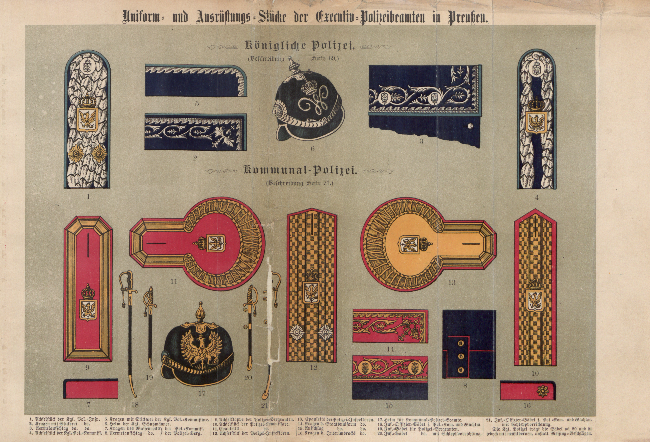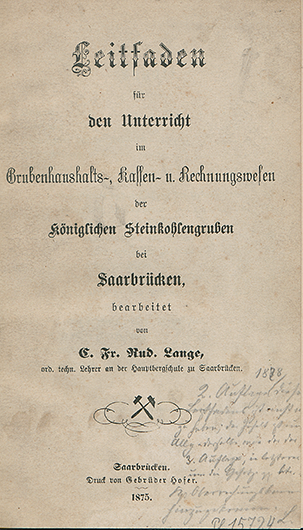Since 2010, Berlin State Library has implemented a project digitizing legal historic materials. The Title is: “Deutsches Territorialrecht 1801-1900” or German Territorial Law in the 19th century. The author of this blog piece can see herself as the organizational part of the whole thing. Whenever I tell people what I is do for a living, a frequent reaction is: “What is Territorial Law??” Mostly, I try to give a rough understanding of what Germany was in the 19th century, namely a country, which was divided in many small federal states, of which every state had its own jurisdiction and so on. At this point, most faces light up slightly, but indeed, German Territorial Law in the 19th century is a field, which is not very well known. However, Berlin State Library owns a considerable corpus of literature on it. Here is an excerpt of the project website which attempts to make things a bit clearer: “Numerous books from the publication period from 1801-1900 are rare or unique literature. Particularly, since the founding of the German Empire, the centrality of the Berlin State Library needs to be considered. During the 19th century, both common law and several particular laws co-existed with one another. Due to their limited scope and extent, their almost infinite variety was frequently disregarded by the research community. In order to neutralise this distortion of perception, the German Research Foundation (DFG) has been supporting systematic digitisation of the core of the State Library’s academic legal collection of German Territorial Law from 1801 to 1900.”

From: Polizei-Handbuch zum praktischen Gebrauch für Polizei-Beamte (Bürgermeister, Amtmänner, Amtsvorsteher, Polizei-Inspektoren, Polizei-Kommissarien, Polizei-Wachtmeister, Gendarmen u.s.w.) : nebst einer Uniformtafel / Retzlaff, Friedrich M. Gladbach [u.a.] : Schellmann, 1892. – 2 Bl., VI S., 1 Bl., 1293 S., 1 Taf.

From: Leitfaden für den Unterricht im Grubenhaushalts-, Kassen- u. Rechnungswesen der Königlichen Steinkohlengruben bei Saarbrücken / bearbeitet von C. Fr. Rud. Lange, ord. techn. Lehrer an der Hauptbergschule zu Saarbrücken Saarbrücken : Hofer, 1875 . – 44 S.
However, when talking about that audience of legal historians, it does not mean, that the Territorial Law materials are exclusively targeted to the needs of academic research. The project is rather up to create an excellent resource freely available for everyone – from those with a general interest in the history and development of the German Particular Laws to the academic researchers undertaking ground-breaking research. The Territorial Law portal will transform the study of the numerous German federal states in the 19th century, improving understanding of the jurisdictions of that time, and preserving cultural heritage of an interesting part of the history of law.
Feel free to contact the project under territorialrecht@sbb.spk-berlin.de
Elisabeth Schrecklinger
